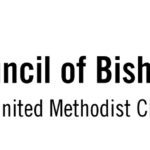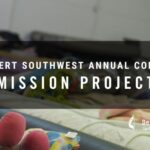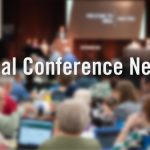by Bishop Bob Hoshibata
The time of anxious waiting has ended. The nation and the world have received the results of the jury verdict in the trial of Derek Chauvin for the murder of George Floyd in 2020. Scripture reminds us that sometimes, when we cry for justice and deliverance from harm, we feel God is not listening. As described in Habakkuk’s message of lament, a feeling of being forsaken, ignored by God is distressing. Have you ever, in the face of violence in today’s world, cried out like the Biblical 7th century prophet?
“O Lord, how long shall I cry for help and you will not listen? Or cry to you ‘Violence!’ and you will not save? Why do you make me see wrongdoing and look at trouble? Destruction and violence are before me; strife and contention arise. So, the law becomes slack, and justice never prevails. The wicked surround the righteous- therefore judgement comes forth perverted.” (Habakkuk 1:2-4, NRSV)
Now that the verdict has been rendered, are we to celebrate and return to life as normal? In a time like this, prayer is an appropriate first response as we invite God into our thinking and feeling.
We pray in memory of George Floyd and for his family and loved ones. The horror of his death haunts us. As the video of his dying moments has been played and viewed over and over, each time I see it, I am horrified that such harm could be done by one human upon another human. Both humans were created by God, loved by God, and yet, we ask ourselves, “Where was God at that moment, as George Floyd was struggling for his life?” Habakkuk’s lament echoes: “How long shall I cry to you “Violence!” and you will not save?”
We pray for Derek Chauvin. Why? we may ask. Simply because he is a child of God beloved by God. What was in Mr. Chauvin’s heart during those infamous 9 minutes? Where was God in those moments that Derek Chauvin engaged in harm that ultimately took the life of George Floyd? Why didn’t God intervene when the bystanders were prevented from stopping the cruelty being inflicted? How many times must we cry out to God, “Violence!” and God will not intercede and stop the violence?
We pray for the community and the world. The verdict certainly offers a glimmer of hope. With this outcome, we give thanks that there is hope. And yet, since George Floyd’s murder, and even while the trial was in progress, violence continues against black women and men. How Long, O Lord, will this continue unabated?
My heart is heavy as I contemplate this moment. There is celebration of the justice that was rendered in the verdict. But the awful realization that this was only one occurrence of violence and brutality mired in racism and white privilege is sobering. When will it repeat itself? How long, O lord, until the world is rid of this harm inflicted on a human sister or brother? We still wait. Because Habakkuk tells us that God cannot achieve the peace we want and pray for without the human family participating fervently in the peacemaking.
The United Methodist Social Principles, demonstrate how inextricably intertwined the world and our faith are. They make clear that as faithful followers of Jesus Christ, we are called to work for a world where “in the love of Christ, who came to save those who are lost and vulnerable, we urge the creation of a genuinely new system for the care and restoration of victims, offenders, criminal justice officials, and the community as a whole.” (2016 United Methodist Book of Discipline, ¶ 164H)
This is the work we are all called to: to be agents of healing and hope in a world broken by violence, death, and hatred. On one hand, we should be supporting measures that seek to do away with the societal conditions that lead to crime. On the other hand, we must also continue to advocate for bettering the relationship between law enforcement and the community at large.
There is still much work to do to bring forth accountability in harmful systems. We need to continue to push for transformation in our communities, churches, families, and in our individual lives; transformation that works to put an end to all killings of people of color so that justice is a reality for people who have never experienced it.
In this season of hope in our resurrected Christ, I call us to continue to enter those places of discomfort to speak the truth in love. To listen for learning and greater understanding. To create places of conversation and greater understanding of each other. To advocate for those who have no other voice, for those who cannot or do not stand up or speak for fear of their own safety. To push back and explain why certain behaviors can no longer be tolerated. And I call us to continue to work to eliminate all forms of institutional racism. In short, to be doing actively what our Christ calls us to do.
As Christians and United Methodists, I again remind us of our baptismal covenant to “Resist evil and oppression in whatever forms they present themselves…”. I call us to affirm our belief that “through God’s transforming power, restorative justice seeks to repair the damage, right the wrong, and bring healing to all involved, including the victim, the offender, the families, and the community.” (2016 United Methodist Book of Discipline, ¶ 164H)
As was said earlier, we must pray. But we have learned that prayer without one’s commitment is empty. A prayer in George Floyd’s memory must be accompanied by your willing pledge to do something so that another family will not have to endure this pain and suffering; so that another community will not have to assuage its fear in the repetition of the tears caused by a needless and violent death. And as difficult as it may be, a prayer for Mr. Chauvin must be accompanied by a prayer for his own accountability, and for forgiveness, and a hope for a repentant heart. And finally, a prayer for our community and world must be mired in the commitment of our own efforts to rid this world of violence, in order that the kin-dom of Jesus Christ, the Prince of Peace may come to pass on earth as it is in heaven.
Blessings,
Bishop Bob




